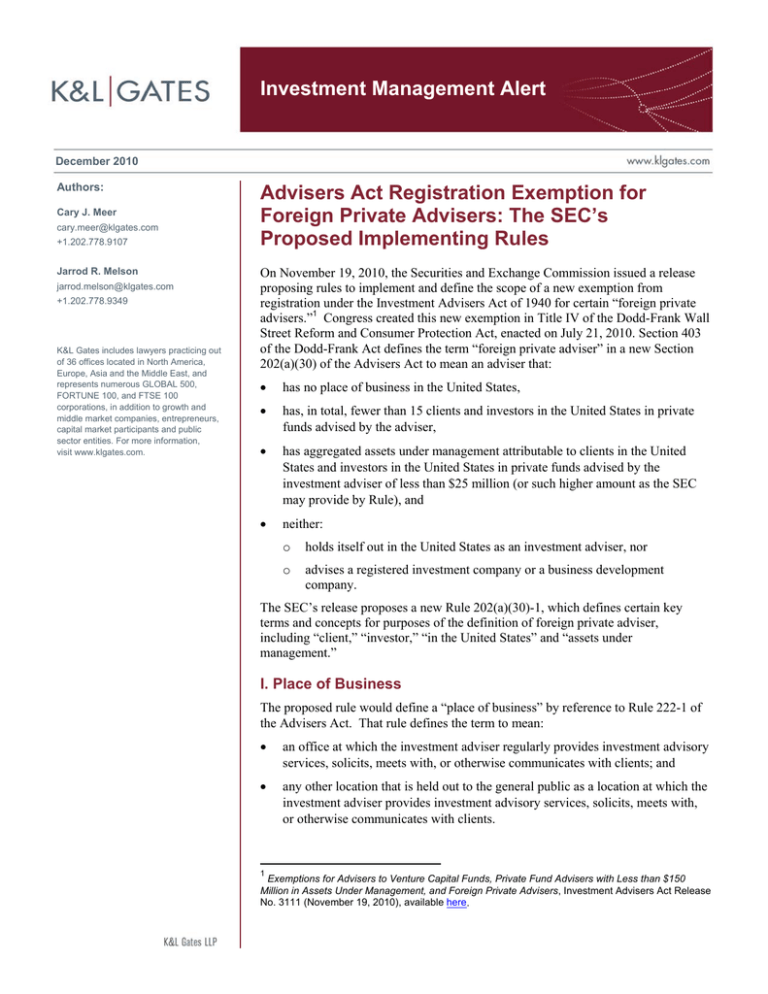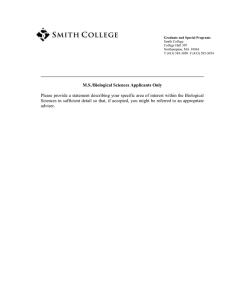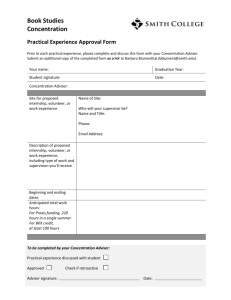
Investment Management Alert
December 2010
Authors:
Cary J. Meer
cary.meer@klgates.com
+1.202.778.9107
Jarrod R. Melson
jarrod.melson@klgates.com
+1.202.778.9349
K&L Gates includes lawyers practicing out
of 36 offices located in North America,
Europe, Asia and the Middle East, and
represents numerous GLOBAL 500,
FORTUNE 100, and FTSE 100
corporations, in addition to growth and
middle market companies, entrepreneurs,
capital market participants and public
sector entities. For more information,
visit www.klgates.com.
Advisers Act Registration Exemption for
Foreign Private Advisers: The SEC’s
Proposed Implementing Rules
On November 19, 2010, the Securities and Exchange Commission issued a release
proposing rules to implement and define the scope of a new exemption from
registration under the Investment Advisers Act of 1940 for certain “foreign private
advisers.”1 Congress created this new exemption in Title IV of the Dodd-Frank Wall
Street Reform and Consumer Protection Act, enacted on July 21, 2010. Section 403
of the Dodd-Frank Act defines the term “foreign private adviser” in a new Section
202(a)(30) of the Advisers Act to mean an adviser that:
•
has no place of business in the United States,
•
has, in total, fewer than 15 clients and investors in the United States in private
funds advised by the adviser,
•
has aggregated assets under management attributable to clients in the United
States and investors in the United States in private funds advised by the
investment adviser of less than $25 million (or such higher amount as the SEC
may provide by Rule), and
•
neither:
o
holds itself out in the United States as an investment adviser, nor
o
advises a registered investment company or a business development
company.
The SEC’s release proposes a new Rule 202(a)(30)-1, which defines certain key
terms and concepts for purposes of the definition of foreign private adviser,
including “client,” “investor,” “in the United States” and “assets under
management.”
I. Place of Business
The proposed rule would define a “place of business” by reference to Rule 222-1 of
the Advisers Act. That rule defines the term to mean:
•
an office at which the investment adviser regularly provides investment advisory
services, solicits, meets with, or otherwise communicates with clients; and
•
any other location that is held out to the general public as a location at which the
investment adviser provides investment advisory services, solicits, meets with,
or otherwise communicates with clients.
1
Exemptions for Advisers to Venture Capital Funds, Private Fund Advisers with Less than $150
Million in Assets Under Management, and Foreign Private Advisers, Investment Advisers Act Release
No. 3111 (November 19, 2010), available here.
Investment Management Alert
II. Counting U.S. Clients and Investors
A. Client or Investor “In the United States”
The definition of foreign private adviser would
require that a foreign private adviser have fewer than
15 clients or investors in private funds in the United
States (the “Counting Requirement”). The proposed
rules would treat a client or investor as being in the
United States for purposes of the Counting
Requirement if it would be a U.S. person under
Regulation S of the Securities Act of 1933.
Generally, Section 902(a) of Regulation S defines
“U.S. person” to mean:
•
Any natural person resident in the United States,
•
Any partnership or corporation organized or
incorporated under the laws of the United States,
•
Any estate of which any executor or
administrator is a U.S. person,
•
Any trust of which any trustee is a U.S. person,
•
Any agency or branch of a foreign entity located
in the United States,
•
Any non-discretionary account or similar
account (other than an estate or trust) held by a
dealer or other fiduciary for the benefit or
account of a U.S. person,
•
Any discretionary account or similar account
(other than an estate or trust) held by a dealer or
other fiduciary organized, incorporated, or (if an
individual) resident in the United States, and
•
Any partnership or corporation if:
o
o
Organized or incorporated under the laws of
any foreign jurisdiction; and
Formed by a U.S. person principally for the
purpose of investing in securities not
registered under the Securities Act, unless it
is organized or incorporated, and owned, by
accredited investors (as defined in
Regulation D of the Securities Act) who are
not natural persons, estates or trusts.
Section 902(b) of Regulation S sets out certain
categories of persons and accounts that expressly are
not U.S. persons.
B. Definition of Client
The definition of “client” for purposes of the
Counting Requirement generally imports certain of
the concepts used in counting clients from current
Rule 203(b)(3)-1 of the Advisers Act, which applies
to the private adviser exemption in Section
203(b)(3) of the Advisers Act. That section is being
rescinded effective July 21, 2011. Under Rule
202(a)(30)-1, a foreign private adviser may count as
a single client:
•
a natural person, and:
o
any minor child of the natural person,
o
any relative, spouse or relative of the
spouse of the natural person who has the
same principal residence,
o
all accounts of which the natural person
and/or the persons referred to in the
preceding two bullet points (“related
persons”) are the only primary
beneficiaries, and
o
all trusts of which the natural person and
the related persons are the only primary
beneficiaries;
•
a corporation, general partnership, limited
partnership, limited liability company, trust or
other legal entity (so long as such entities are
not private funds) to which the adviser provides
services based on the objectives of the entity
rather than the individual objectives of the
entity’s shareholders, partners, limited partners,
members or beneficiaries (an “Entity Investor”);
and
•
two or more Entity Investors that have identical
owners.
Although Rule 202(a)(30)-1 imports certain
concepts from Rule 203(b)(3)-1, the definition of
client for these purposes would be narrower than
that under Rule 203(b)(3)-1, which permitted an
adviser to count a fund as a single client, because a
foreign private adviser would have to look through a
private fund that would otherwise be a single client
and count any U.S. investors. If an adviser were
required to count one or more U.S. investors in a
fund, however, it would not have to count separately
the fund as a U.S. client.
December 2010
2
Investment Management Alert
For purposes of the Counting Requirement, a foreign
private adviser would have to count a U.S. client or
investor even if the adviser did not receive
compensation for the services it provided to such
client.
C. Definition of Investor
The proposed rules would define “investor” to mean
a person that would be included in (1) determining
the number of beneficial owners of a private fund
relying on Section 3(c)(1) of the Investment
Company Act of 1940 or (2) determining whether all
investors in a private fund relying on Section 3(c)(7)
of the Investment Company Act were “qualified
purchasers.” The proposed rule’s use of this
definition means that a foreign private adviser would
have to look through certain entities (and subject it
to a number of related rules and guidance) in
determining the ultimate beneficial owners of a
private fund. This provision is intended to prevent a
foreign private adviser or a third party from creating
nominee accounts or other vehicles in which U.S.
investors pool their money to keep the foreign
private adviser from counting the underlying U.S.
investors.
The definition of “investor” is not limited to equity
investors. U.S. persons holding debt (including
short-term paper) issued by a private fund must be
treated as U.S. investors. In addition to looking at
actual investors, the SEC seeks to prevent
manipulation of the rule by requiring a foreign
private adviser to consider U.S. persons with indirect
exposure to a fund. The rule would require a foreign
private adviser to look through record holders of
private fund interests if the economic risk of the
investment has been transferred by that record
holder to a third-party U.S. person, such as through a
total return swap, barrier call option or other
derivative. In order to discern whether and when
economic risk is shifted to third parties, a foreign
private adviser would have to ask specific and
pointed questions and require ongoing
representations regarding indirect fund exposure in
its funds’ subscription agreements.
In addition, a foreign private adviser would have to
count as investors its “knowledgeable employees”
(as defined under the Investment Company Act) who
are U.S. persons, even though such persons are
generally excluded from both the counting of
beneficial owners under Section 3(c)(1) and the
qualified purchaser requirement of Section 3(c)(7).
III. Calculating Assets Under
Management
In calculating the assets of its U.S. clients and
investors, the foreign private adviser would have to
use a “fair value” standard of measurement. In
addition to actual assets, the adviser would have to
count the amount of any outstanding but uncalled
capital commitments in private funds. The release
does not address commitments that are excused in
whole or in part, although it would make sense for
these to be deducted from assets under management
when excused, if the excuse is binding and
irrevocable. The foreign private adviser would not
be permitted to subtract outstanding indebtedness or
other liabilities; thus, an adviser would not be able
to deduct accrued fees, incentive allocations or
expenses or the amount of any borrowing.
IV. Key Issues
1. Unibanco Status. Some have questioned
whether non-U.S. advisers could continue to
rely on the Unibanco line of no-action letters in
light of the foreign private adviser exemption.2
Unibanco and subsequent no-action letters
permit a non-U.S. investment adviser, without
registering under the Advisers Act, to provide
investment advice to the U.S. clients of an
affiliated U.S. registered investment adviser,
subject to a number of conditions and
requirements. The SEC staff in recent public
statements has indicated that the Unibanco
letters will continue to be valid, although the
SEC has not formally reiterated or supported
the guidance.
2. Scope of the Exemption. The foreign private
adviser exemption is very limited in scope
because of the $25 million limit. The DoddFrank Act gives the SEC the ability to increase
this limit, and by doing so the SEC could give
non-U.S. advisers the ability to manage the
institutional accounts of a relatively small
number of large U.S. clients (fewer than 15)
without triggering the increasingly burdensome
registration and regulation requirements of the
Advisers Act. In the proposing release,
2
Uniao de Bancos de Brasileiros S.A., SEC No-Action Letter
(July 28, 1992).
December 2010
3
Investment Management Alert
however, the SEC does not propose to increase
the $25 million limit.
3. Reporting. Foreign private advisers are not
subject to any reporting or recordkeeping
requirements, as is the case with certain other
exemptions created by the Dodd-Frank Act.
This lack of reporting or recordkeeping could be
a key reason why the SEC would be wary of
expanding the scope of the exemption by
increasing the $25 million limit.
Anchorage Austin Beijing Berlin Boston Charlotte Chicago Dallas Dubai Fort Worth Frankfurt Harrisburg Hong Kong London
Los Angeles Miami Moscow Newark New York Orange County Palo Alto Paris Pittsburgh Portland Raleigh Research Triangle Park
San Diego San Francisco Seattle Shanghai Singapore Spokane/Coeur d’Alene Taipei Tokyo Warsaw
Washington, D.C.
K&L Gates includes lawyers practicing out of 36 offices located in North America, Europe, Asia and the Middle East, and represents numerous
GLOBAL 500, FORTUNE 100, and FTSE 100 corporations, in addition to growth and middle market companies, entrepreneurs, capital market
participants and public sector entities. For more information, visit www.klgates.com.
K&L Gates comprises multiple affiliated entities: a limited liability partnership with the full name K&L Gates LLP qualified in Delaware and
maintaining offices throughout the United States, in Berlin and Frankfurt, Germany, in Beijing (K&L Gates LLP Beijing Representative Office), in
Dubai, U.A.E., in Shanghai (K&L Gates LLP Shanghai Representative Office), in Tokyo, and in Singapore; a limited liability partnership (also named
K&L Gates LLP) incorporated in England and maintaining offices in London and Paris; a Taiwan general partnership (K&L Gates) maintaining an
office in Taipei; a Hong Kong general partnership (K&L Gates, Solicitors) maintaining an office in Hong Kong; a Polish limited partnership (K&L
Gates Jamka sp.k.) maintaining an office in Warsaw; and a Delaware limited liability company (K&L Gates Holdings, LLC) maintaining an office in
Moscow. K&L Gates maintains appropriate registrations in the jurisdictions in which its offices are located. A list of the partners or members in each
entity is available for inspection at any K&L Gates office.
This publication is for informational purposes and does not contain or convey legal advice. The information herein should not be used or relied upon
in regard to any particular facts or circumstances without first consulting a lawyer.
©2010 K&L Gates LLP. All Rights Reserved.
December 2010
4







![Literature Option [doc] - Department of French and Italian](http://s3.studylib.net/store/data/006916848_1-f8194c2266edb737cddebfb8fa0250f1-300x300.png)